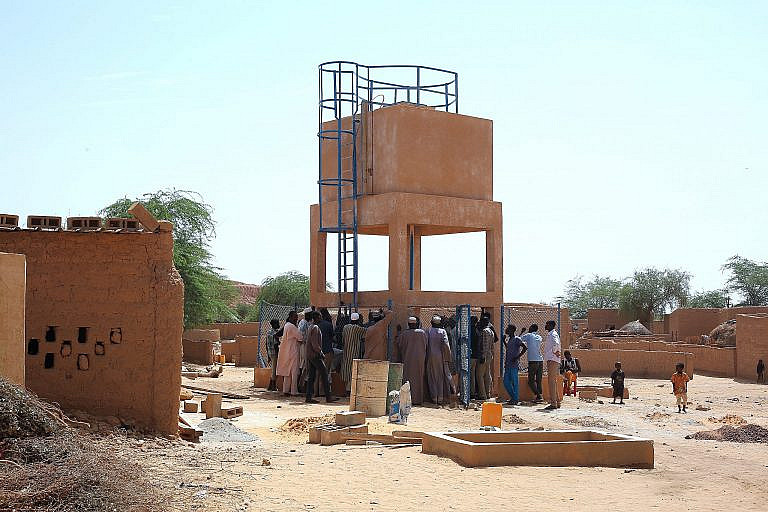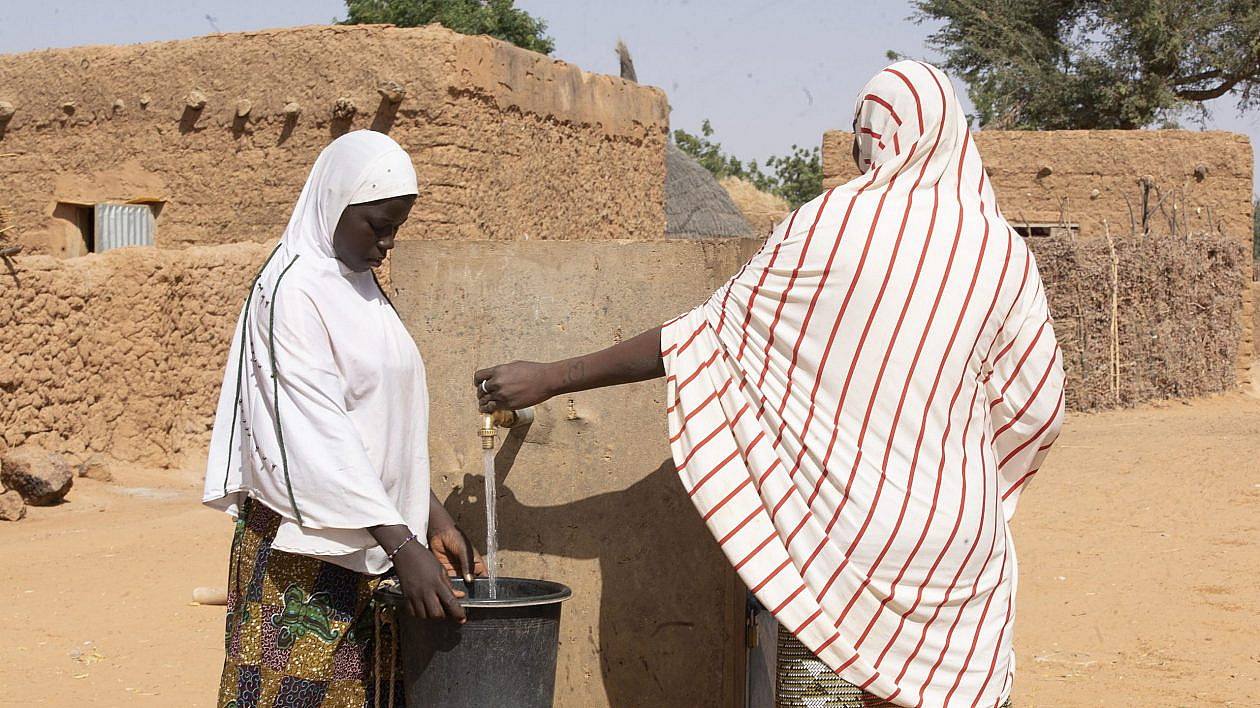Beyond insecurity: better access to water in the Tahoua and Tillabéri regions
In order to stabilise areas facing both complex security challenges and high economic, social and climate vulnerabilities, the G5 Sahel member countries asked the G5 Sahel Executive Secretariat in 2018 to develop an Emergency Development Programme (EDP). The Sahel Alliance members mobilised in December 2018 to implement this programme: they financed, to the tune of € 266 million, 22 so-called “quick impact” projects aimed at improving the living conditions of populations in the fragile border regions of the Joint Force’s 3 intervention zones.
In Niger, in response to the government’s wish to intervene urgently in the target areas, the European Union has contributed and financed a programme worth eight million euros implemented by the Ministry of Hydraulics and Sanitation and its decentralised services. This programme uses the Joint Financing Mechanism (Mécanisme de financement commun, MFC) channel, and implementation has been entrusted to LuxDev. Launched in January 2020, this EDP support programme was co-financed by the Netherlands to the tune of € 2 million and ended in June 2022, following a 30-month implementation period.
After two and a half years of implementation, the EDP support programme has achieved tangible results in the intervention zones where insecurity is high and where people’s access to drinking water and sanitation services remains low, with 37% for the Tahoua region and 51% for the Tillabéri region.
When there was no water tower, in the event of childbirth, people had to draw water from the well to wash their clothes and so on. Now, thanks to the rehabilitation of the water tower, we have water within our reach and we can use it as much as we want. This has really improved our living conditions. Today, we are safe from diseases linked to the consumption of unclean water.
Allassane SEYBOU, health worker at the Sargane integrated health centre, department of Ouallam – Tillabéri region
The capacities of actors in the management of drinking water supply services are strengthened:
- 5 local water and sanitation plans have been drawn up, enabling the capacity of municipalities to be strengthened in sectoral strategic planning;
- The beneficiary municipalities have set up contractors to ensure the operation, management and maintenance of the drinking water systems built.
In the implementation of the EDP, particular attention is paid to support for local authorities and deconcentrated state services, to enable them to better fulfil their role as service providers for the benefit of the population and to contribute to their upgrading in the eyes of the beneficiaries.
Social cohesion and conflict prevention are strengthened following a triple nexus approach of development-humanitarian-peace:
- Mitigating tensions related to the use of pastoral resources through the construction of pastoral hydraulic infrastructures;
- Reducing conflicts around hydraulic works and promotion of equitable access for users through the signing of social agreements;
- Promoting community dialogue.
In the past, we had experienced conflict situations with transhumant cattle herders. Now we have access to water in sufficient quantity. Today, we live in harmony thanks to this programme, which has enabled the installation of a pastoral pumping station in our locality.
Daouda ABASS, beneficiary – municipality of Fillingué, Tillabéri region

A STRENGTHENED ECOSYSTEM AROUND THE PUBLIC WATER SERVICE
These achievements have created an ecosystem and synergies around the public drinking water service, including:
- The municipalities that own the facilities, which provide the public water service via a private delegate;
- The associations of users of the public water service, which play a key role in arbitrating between the operator and the users;
- The public water utility’s advisory support structures, which provide technical and financial monitoring;
- The decentralised services of the Ministry of Hydraulics and Sanitation that control the technical feasibility and ensure water quality control;
- and finally, users who buy water from the tap.
The combined efforts of all these actors have resulted in:
- Strengthening the organisational and societal fabric of the village, which now integrates displaced people from the region in complete peace of mind;
- Improving the health conditions of the population by adopting good hygiene and sanitation practices and reducing diseases linked to poor hygiene;
- Increasing the attendance of young girls at school, particularly by reducing the burden of water collection;
- Avoiding local conflicts related to water access and management.

The availability of good quality water on a permanent basis constitutes a qualitative advance in the beneficiary villages, which makes it possible to accelerate economic growth through the creation of jobs, in particular through delegated management (manager, fountain operator, young electro-mechanical maintenance workers, plumbers, etc.).
THE JOINT FINANCING MECHANISM, AN INNOVATIVE, FLEXIBLE AND RAPID TOOL
The EDP support programme was implemented by the Ministry of Hydraulics and Sanitation and its regional directorates of Tahoua and Tillabéri through the Joint Financing Mechanism (Mécanisme de Financement Commun, MFC), an innovative financial instrument created in 2017 that contributes to the implementation of the Water, Hygiene and Sanitation Sector Programme. The MFC was set up to strengthen the alignment and harmonisation of sector funding and to mobilise financial resources to fill the PROSEHA’s funding gaps.
Elements of successful implementation through the MFC:
- Increased leadership of the Ministry of Hydraulics and Sanitation in the implementation and coordination of programme activities;
- Rapid start-up of the programme with upstream identification of sites to be rehabilitated by actors at regional level;
- Flexibility and speed in the implementation of the programme through the MFC.
Several EDP projects have been co-financed or financed in parallel by members of the Sahel Alliance, in a partnership approach that strengthens operational coordination between donors and illustrates the benefits. Finally, a “multi-actor” implementation (States, local authorities, NGOs, etc.) has been favoured in order to best adapt to the intervention contexts of particularly fragile areas.
Source of the article: LuxDev (LuxDev – News)
Further information on the Emergency Development Programme:
The G5 Sahel Emergency Development Programme (EDP)

